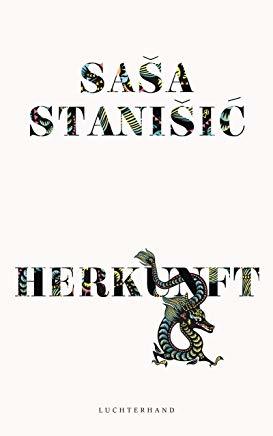What do you think?
Rate this book


365 pages, Hardcover
First published March 18, 2019





Sie lie├¤en sich in Jugoslawien am Blinddarm operieren, kauften ein jugoslawisches Auto, machten Schulden oder beglichen sie, standen Krisen und Gl├╝ck durch, und manche haben den Blinddarm noch. Das Einzige, was sie in Jugoslawien nicht mehr k├Čnnen: sterben. Der Erde ist das gleich, ihnen nicht.Herkunft is a careful search for clues, a search for identity, a self-questioning. And even though Stani┼Īi─ć didn't find any definite answers, he found the many stories that shaped him and his parents along the way, memories, both private and political, private-political, political-private.
Meine Familie lebt ├╝ber die ganze Welt verstreut. Wir sind mit Jugoslawien auseinandergebrochen und haben uns nicht mehr zusammensetzen k├Čnnen. Was ich ├╝ber Herkunft erz├żhlen m├Čchte, hat auch zu tun mit dieser Disparatheit, die ├╝ber Jahre mitbestimmt hat, wo ich bin: so gut wie niemals dort, wo Familie ist.Herkunft is the story of a family's history, but also the story of a genocide, and the story of the death of a grandmother. The novel begins both in the past and in the present, which illustrates one of the book's reoccurring themes: memory. How we remember things and what we remember shape the way we think of ourselves. Kristina, Stani┼Īi─ć's (= the narrator's) grandmother, suffers from dementia. What she remembers doesn't always make sense to the people around her, but that doesn't mean it isn't true, or a true part of herself.
Wir lasen stumm und blieben stumm nach dem Lesen. Sonst meldete sich immer gleich jemand, weil etwas nicht begriffen worden war. Diesmal hatten das Wesentliche wohl alle begriffen. Diesmal waren wir gemeint.Even at age 14, Stani┼Īi─ć knew it would be better "not to be meant", better to be perceived as a "good immigrant". And already that fear of sticking out brings forth its own hateful logic: "What do we Yugos have in common with Vietnamese? And already I was searching in the little knowledge I had about Vietnam for what could be hateful about the country and its people. And the real horror: I weighed up how I, as a Yugoslav, was different, how I was better, in order to assure myself, as it were, that nothing like that could happen to us, the good guys."
Dass ich diese Geschichten ├╝berhaupt schreiben kann und schreiben will, verdanke ich nicht Grenzen, sondern ihrer Durchl├żssigkeit, verdanke ich Menschen, die sich nicht abgeschottet, sondern zugeh├Črt haben.Cheers to this! Let's take these words to heart. Let's build bridges and listen to one another. I, for my part, am more than humbled and grateful that I had to the opportunity to listen to what Stani┼Īi─ć had to stay. It has shaped me forever.
Even now I tell myself that I had only good reasons for not wanting visitors over. There wasn't room and it was too loud, that was one thing and my friends understood that. But did they also know I was ashamed? I was ashamed of the old furniture, of not owning any games, or a PC, or almost any music. I was ashamed that we ate off nonmatching dishes, and rarely together. Using knives with bent blades.That final detail--knives with bent blades--separates a great writer from a merely good one.